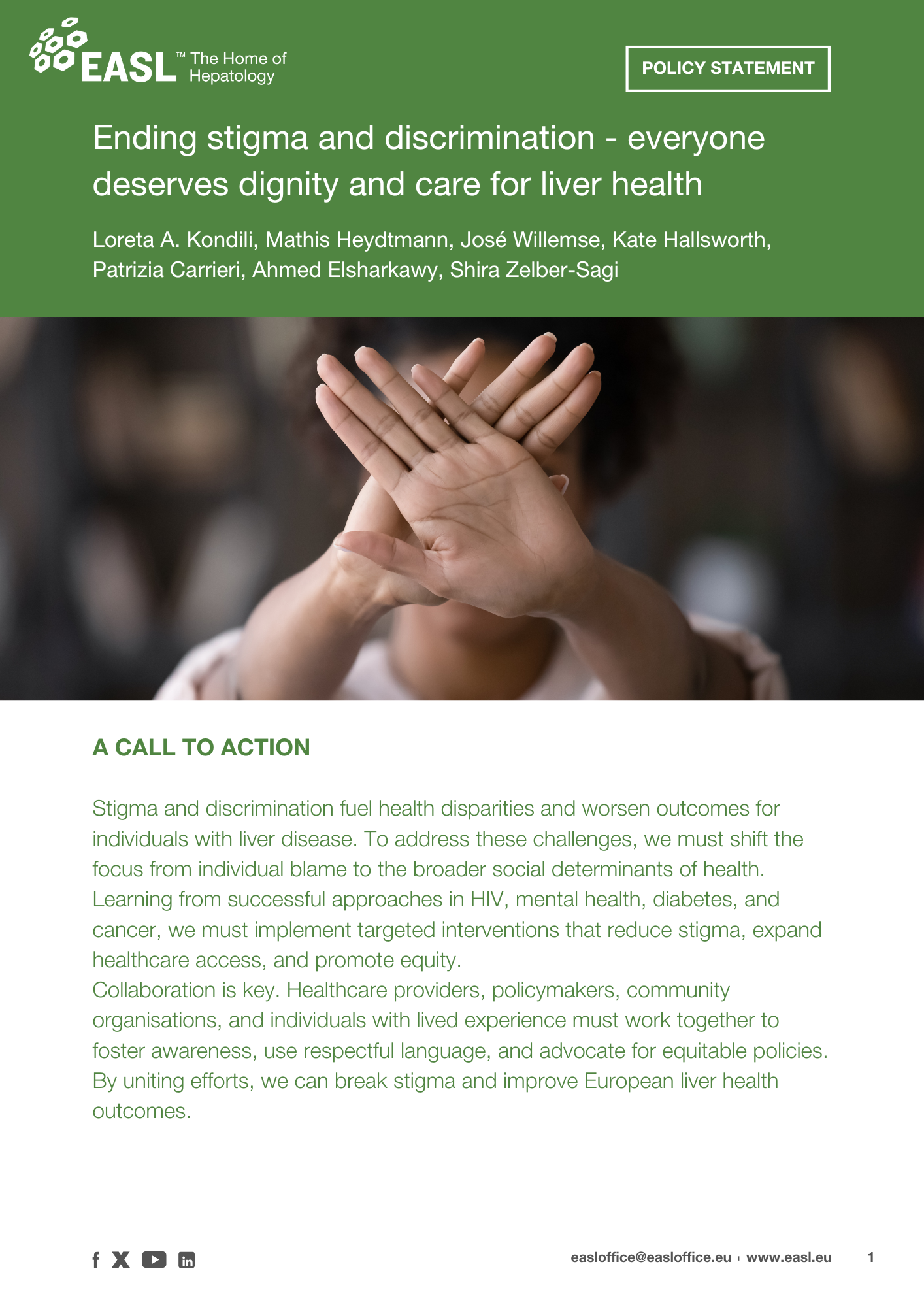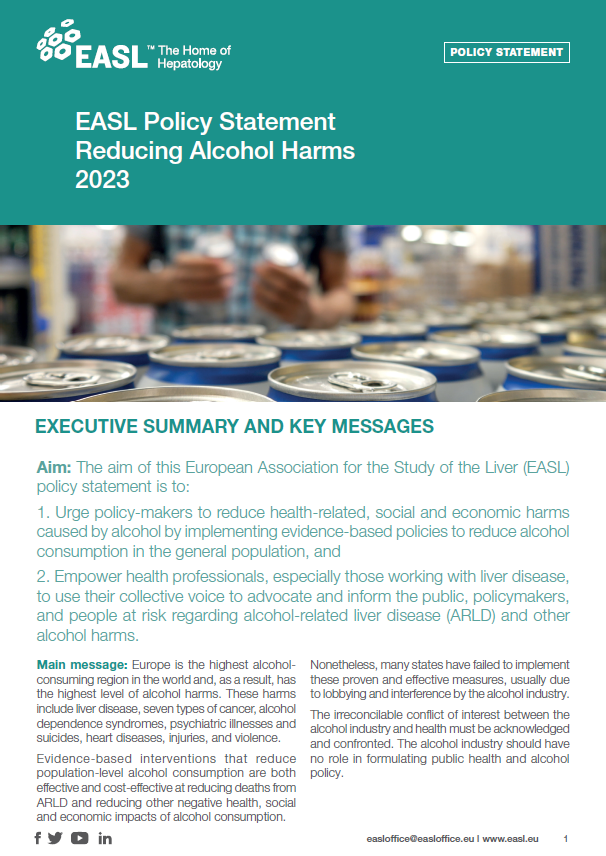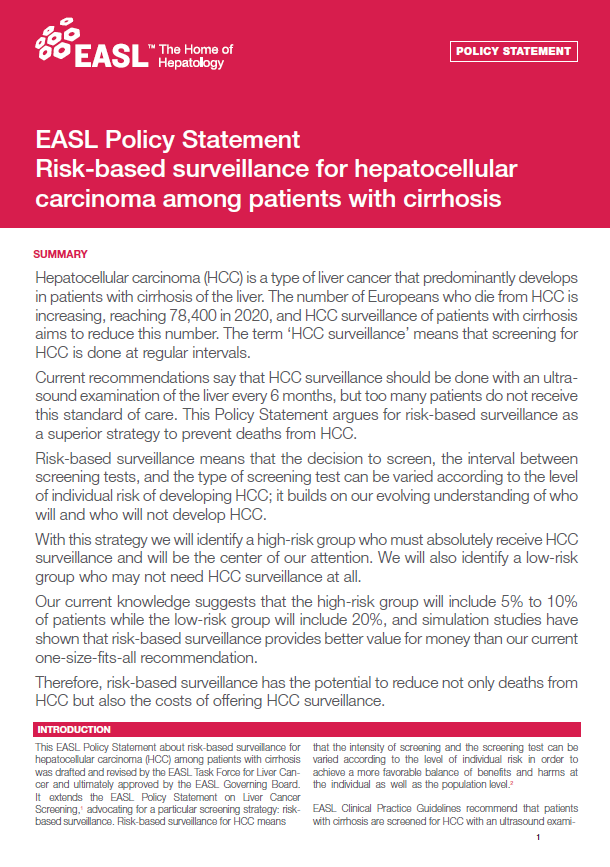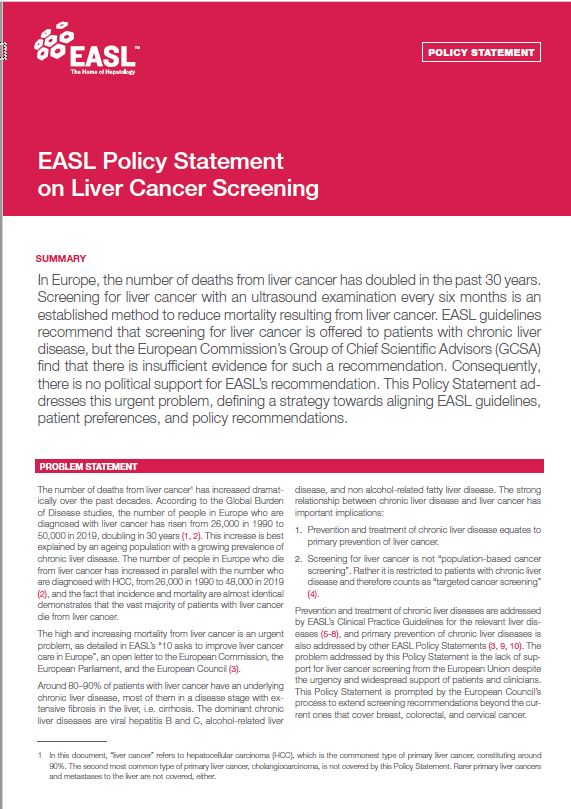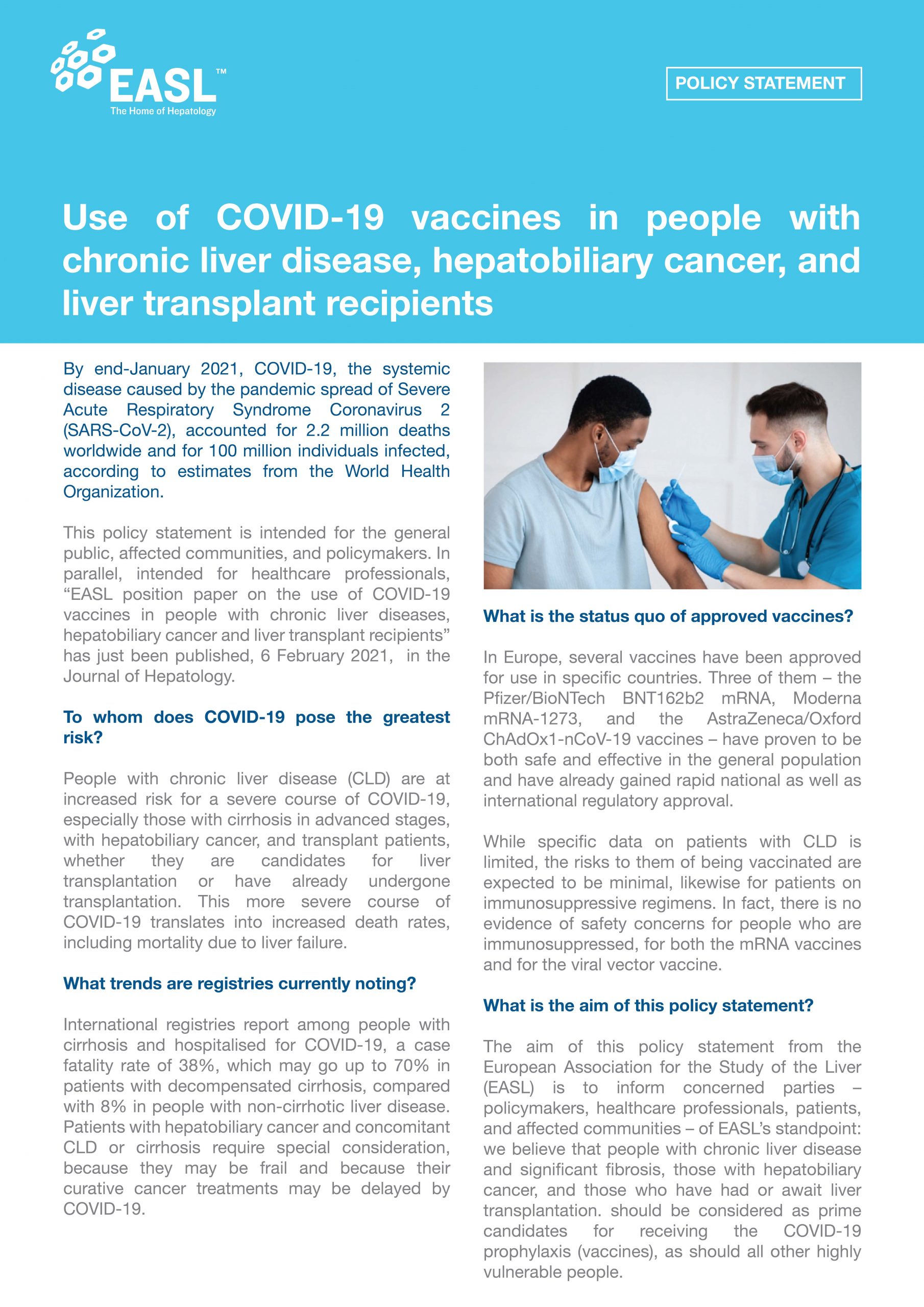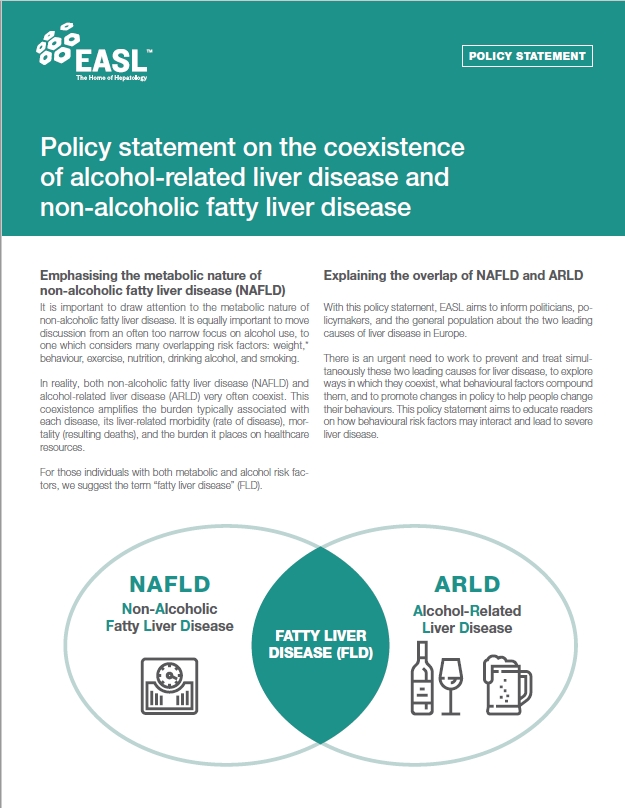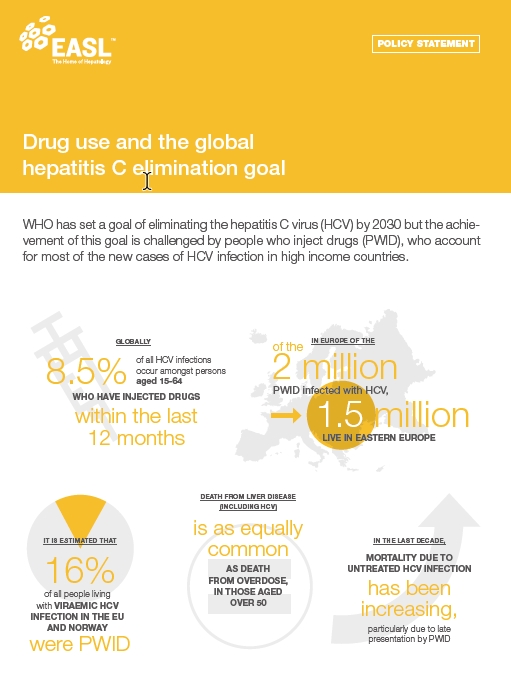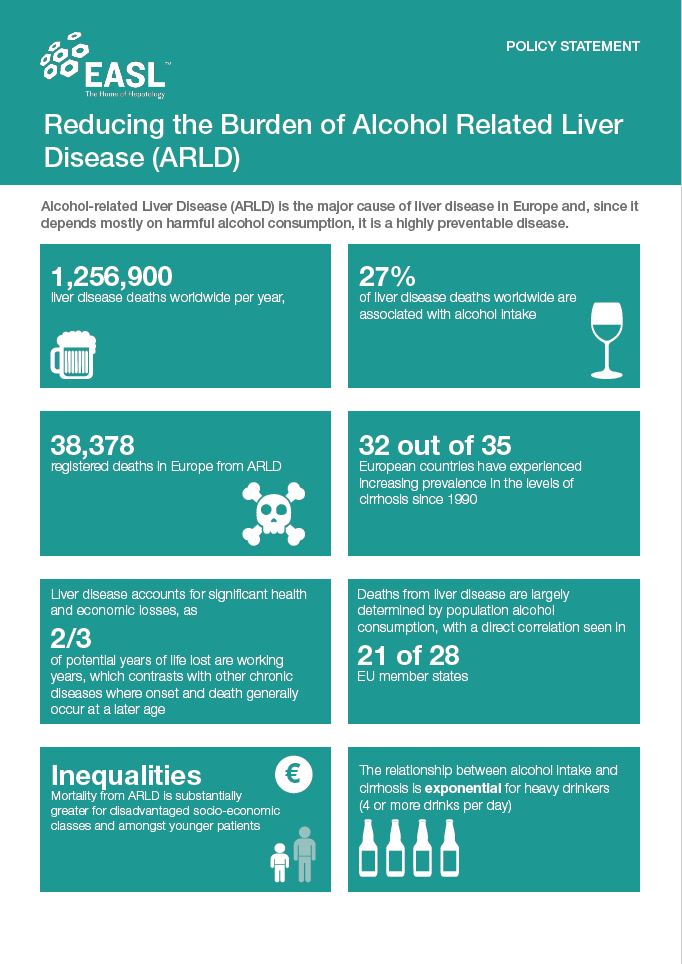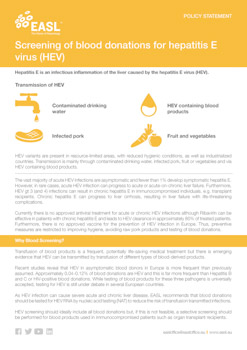The policy statements are designed to influence and determine decisions and actions within the scope of coverage. The EASL Policy Statements are related to the burden of liver disease in Europe. They aim to describe the epidemiology and analysis of risk factors to identify the best public health interventions that could impact these risk factors to reduce the burden of liver disease.
Stigma and discrimination fuel health disparities and worsen outcomes for individuals with liver disease. To address these challenges, we must shift the focus from individual blame to the broader social determinants of health. Learning from successful approaches in HIV, mental health, diabetes, and cancer, we must implement targeted interventions that reduce stigma, expand healthcare access, and promote equity.
Full version of Policy Statement
Improving and strengthening the public health response to migrant health needs is key to improving liver health and eliminating hepatitis in the European region. The European Region is facing large numbers of people on the move with increasing numbers of vulnerable migrants, such as displaced persons, refugees and asylum seekers, who often face poor health…
Read MoreGeneva, June 2023: The aim of this European Association for the Study of the Liver (EASL) policy statement is to: 1. Urge policy-makers to reduce health-related, social and economic harms caused by alcohol by implementing evidence-based policies to reduce alcohol consumption in the general population, and 2. Empower health professionals, especially those working with liver…
Read MoreGeneva, 18 April 2023: This EASL Policy Statement about risk-based surveillance for hepatocellular carcinoma (HCC) among patients with cirrhosis demonstrates how risk-based surveillance has the potential to reduce not only deaths from HCC but also the costs of offering HCC surveillance.
Read MoreGeneva, 27 May 2022: In Europe, the number of deaths from liver cancer has doubled in the past 30 years. Screening for liver cancer with an ultrasound examination every six months is an established method to reduce mortality resulting from liver cancer. EASL guidelines recommend that screening for liver cancer is offered to patients with…
Read MoreThis policy statement is intended for the general public, affected communities, and policymakers. In parallel, intended for healthcare professionals, an article titled “EASL position paper on the use of COVID-19 vaccines in people with chronic liver diseases, hepatobiliary cancer and liver transplant recipients” was published, 6 February 2021, in the Journal of Hepatology. Download the…
Read MoreAlcohol-related Liver Disease (ARLD) is the major cause of liver disease in Europe and, since it depends mostly on harmful alcohol consumption, it is a highly preventable disease.
Full version of Policy Statement
WHO has set a goal of eliminating the hepatitis C virus (HCV) by 2030 but the achievement of this goal is challenged by people who inject drugs (PWID), who account for most of the new cases of HCV infection in high-income countries.
In order to achieve the 2030 WHO viral hepatitis elimination goals, EASL recommends: that all barriers to the uptake of healthcare services by PWID be removed by changing policies and discrimination that hinder access. This includes the decriminalisation of minor, non-violent drug offences and the adoption of an approach based on public health promotion, respect for human rights and evidence.
Full version of Policy Statement
Alcohol-related Liver Disease (ARLD) is the major cause of liver disease in Europe and, since it depends mostly on harmful alcohol consumption, it is a highly preventable disease.
Full version of Policy Statement
Hepatitis E is an infectious inflammation of the liver caused by the hepatitis E virus (HEV).
Full version of Policy Statement


